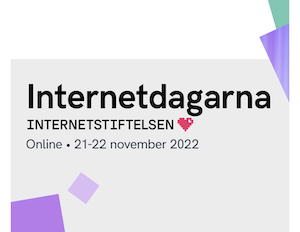digital infrastructure
See the following -
Addressing Open Source's Free Rider Problem
 Nadia Eghbal, in her major report on the state of our digital infrastructure, and Jonathan Lister, in his response describing our digital ecosystem, both point to a tragedy of the commons in open source software. While some projects are sustainable, many still struggle with "a free rider problem." As Nadia puts it: "Resources are offered for free, and everybody (whether individual developer or large software company) uses them, so nobody is incentivized to contribute back, figuring that somebody else will step in"...
Nadia Eghbal, in her major report on the state of our digital infrastructure, and Jonathan Lister, in his response describing our digital ecosystem, both point to a tragedy of the commons in open source software. While some projects are sustainable, many still struggle with "a free rider problem." As Nadia puts it: "Resources are offered for free, and everybody (whether individual developer or large software company) uses them, so nobody is incentivized to contribute back, figuring that somebody else will step in"...
- Login to post comments
Blockchain Startup to Secure 1 Million e-Health Records in Estonia
 Data security startup Guardtime has announced a partnership with the Estonian eHealth Foundation that will see it deploy a blockchain-based system to secure over 1 million patient healthcare records. Under the deal, the foundation will integrate Guardtime's keyless signature infrastructure (KSI) blockchain into the foundation's Oracle database engine to provide "real-time visibility" into the state of patient records...
Data security startup Guardtime has announced a partnership with the Estonian eHealth Foundation that will see it deploy a blockchain-based system to secure over 1 million patient healthcare records. Under the deal, the foundation will integrate Guardtime's keyless signature infrastructure (KSI) blockchain into the foundation's Oracle database engine to provide "real-time visibility" into the state of patient records...
- Login to post comments
Open Source To Be The Norm In German Public Procurement
 On 8 December 2021 a coalition of SPD (Social Democratic Party, the Greens (Alliance 90 / The Greens) and Liberals (Free Democratic Party) took office after obtaining a majority in the 26 September federal elections. With the new government comes a renewed commitment to digitalisation of not only the public sector but society and economy at large...In the final coalition agreement open source software plays an important role. It is considered in a digital sovereignty and pan-European context, as a way to bring progress to digital infrastructure and government services. Interoperability, data portability, open standards and open source are all named as prerequisites to achieve digital sovereignty.
On 8 December 2021 a coalition of SPD (Social Democratic Party, the Greens (Alliance 90 / The Greens) and Liberals (Free Democratic Party) took office after obtaining a majority in the 26 September federal elections. With the new government comes a renewed commitment to digitalisation of not only the public sector but society and economy at large...In the final coalition agreement open source software plays an important role. It is considered in a digital sovereignty and pan-European context, as a way to bring progress to digital infrastructure and government services. Interoperability, data portability, open standards and open source are all named as prerequisites to achieve digital sovereignty.
- Login to post comments
Pandemic Stress Test: The Open Source Cloud Is Up To The Challenge
 We all know that modern business has become a rapid-response environment. Never before have we had the number of IT resources at the tips of our fingers as we have today, and most of them are enabled by the cloud. When we refer to "the cloud", we may be talking about several computing concepts, but typically the cloud consists of a set of remotely-hosted resources and services, from web pages to mobile apps or even traditional desktop applications. The cloud continuously transforms our connectivity on a global scale. It can be found everywhere, from our vehicles to our phones and even to our watches. From what we are witnessing right now, the cloud may ultimately safely carry numerous organizations through a global crisis.
We all know that modern business has become a rapid-response environment. Never before have we had the number of IT resources at the tips of our fingers as we have today, and most of them are enabled by the cloud. When we refer to "the cloud", we may be talking about several computing concepts, but typically the cloud consists of a set of remotely-hosted resources and services, from web pages to mobile apps or even traditional desktop applications. The cloud continuously transforms our connectivity on a global scale. It can be found everywhere, from our vehicles to our phones and even to our watches. From what we are witnessing right now, the cloud may ultimately safely carry numerous organizations through a global crisis.
- Login to post comments
Open Source as Sustainable Digital Infrastructure - OpenForum Europe
OpenForum Europe (OFE), together with the Swedish Public Sector Network Open Source and Data, are organizing a track on Cybersecurity, sustainability and Digital Sovereignty as part of the Internet Days in Stockholm, Sweden. Open source software is a critical and extensive part of our common digital infrastructure. It presents both opportunities and risks. Opportunities such as enhanced interoperability of infrastructure and services within and across borders, as well as reducing dependencies and lock-in to individual vendors and system solutions. The risks stem from sustainability issues and include the fact that many open source applications are maintained by volunteers and there is a general under-investment in maintenance.

This in a rapidly changing geopolitical and digital environment, where vulnerabilities, introduced knowingly or unknowingly, are increasingly at risk of being exploited by malicious third parties with potentially major consequences. As the public sector intends to reuse more of each other’s digital infrastructure, there is a growing need to ensure that what we do is secure. Therefore, this thematic track aims to show the extent of open source software in our own and shared digital infrastructure, and its importance for our digital sovereignty and cybersecurity.
- Login to post comments